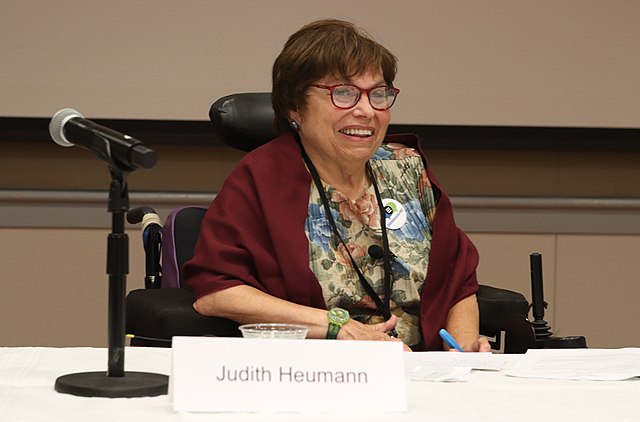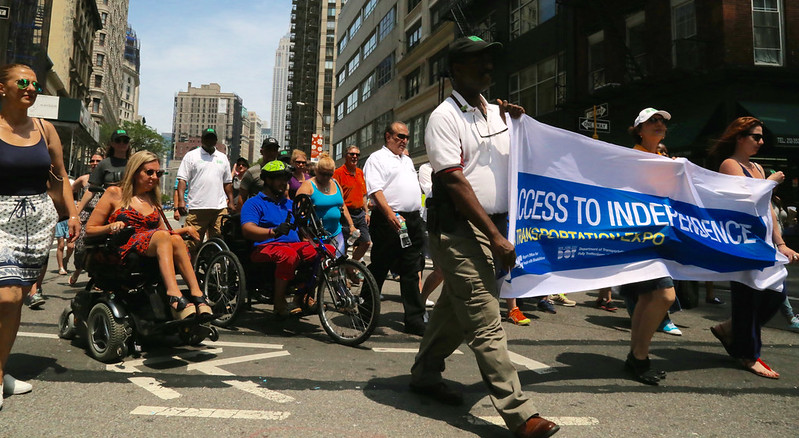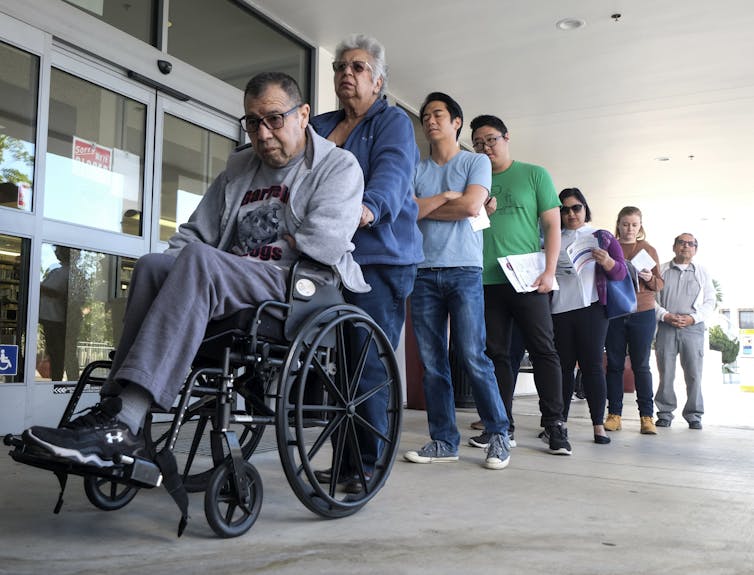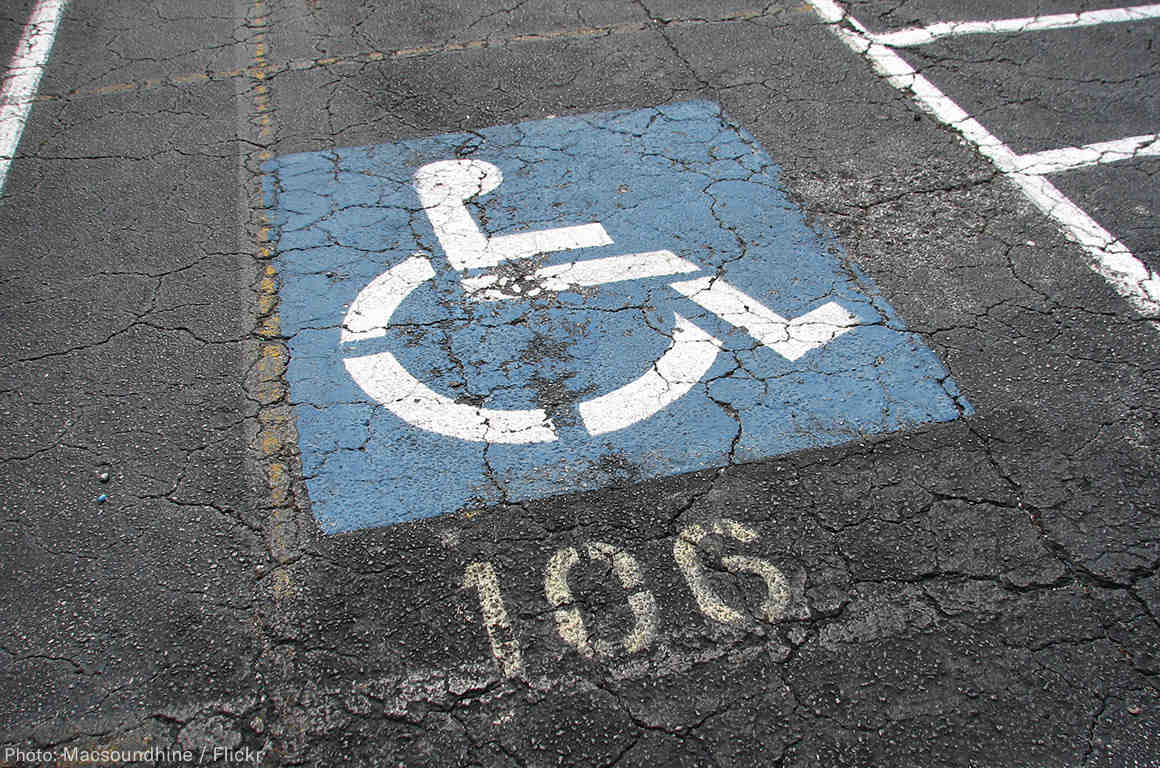“Disability only becomes a tragedy when society fails to provide the things we need to lead our lives—job opportunities or barrier-free buildings, for example,” Heumann told one reporter.
By Julia Conley. Published 3-6-2023 by Common Dreams

Judy Heumann as a panelist at TASH’s Outstanding Leadership in Disability Law Symposium and Awards Dinner, George Washington University’s Marvin Center, July 25 2019. Photo: Taylordw/Wikimedia Commons/CC
Disability rights advocates were joined by labor leaders, progressive politicians, and other advocates for justice on Monday in mourning the death of influential activist Judy Heumann, who began decades of advocacy work fighting for employment as a teacher and was credited with paving the way for numerous federal laws to protect people with disabilities. She was 75 and died on March 4.
Known as the “mother of the disability rights movement,” Heumann’s first experience with advocacy work came in 1970 after she was denied employment at a New York City public school, with the school citing her “paralysis of both lower extremities” as the reason and saying she would not be able to evacuate students and herself in case of a fire. Continue reading




